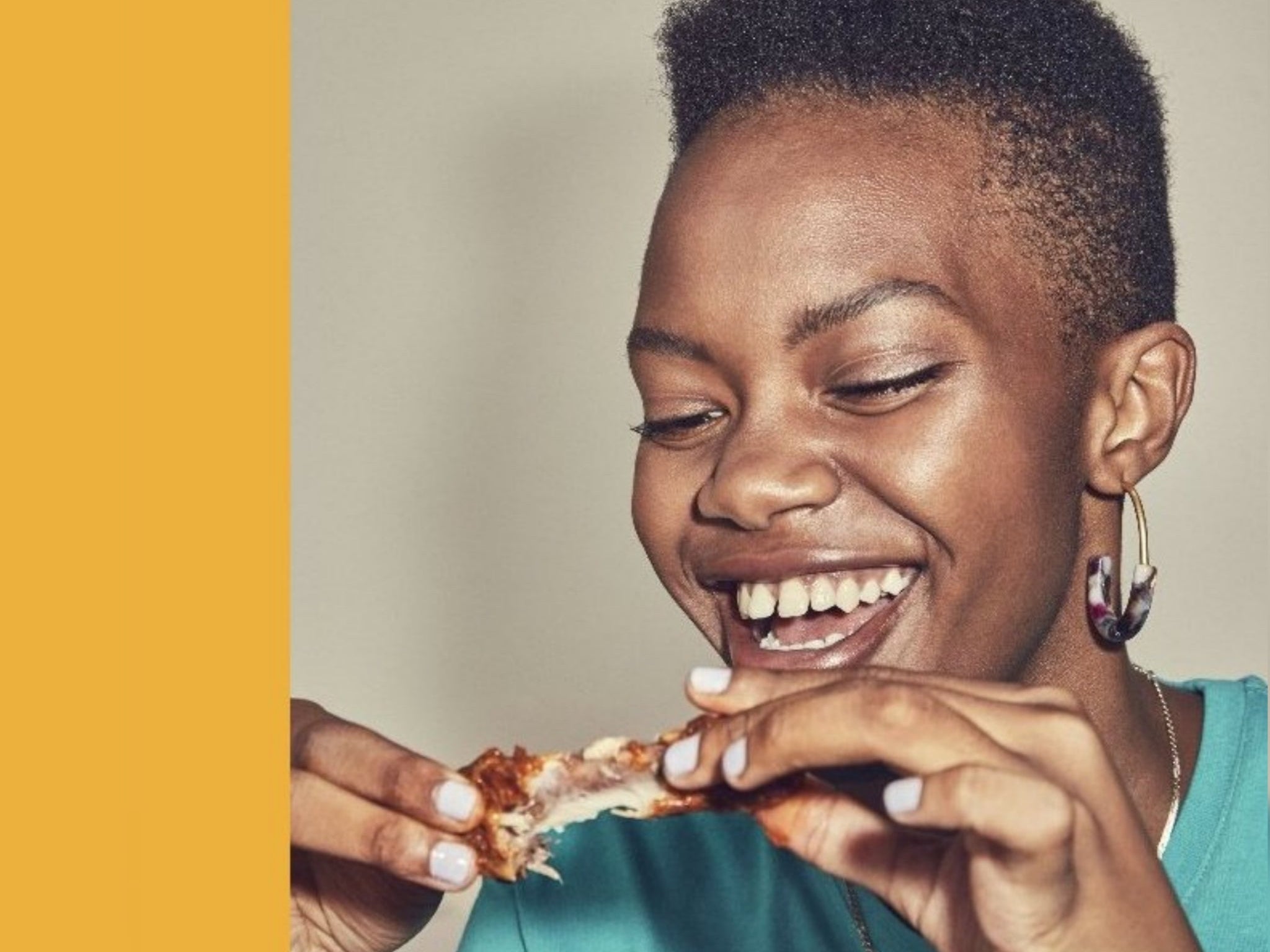UberEats criticised for ‘tone deaf’ Black History Month campaign featuring a black woman eating chicken
‘Can we let go of this stereotype now?’ one person says

UberEats has been accused of being “tone deaf” and playing on established stereotypes after it used a photo of a black woman eating chicken as part of a Black History Month campaign.
The advert is part of a wider promotion that UberEats is offering to mark Black History Month, through which customers can get discounts at Afro-Caribbean restaurants throughout the month of October.
However, some social media users have taken issue with the image used to promote the offer, which shows a young black woman eating a piece of chicken.
“Yikes to this tone deaf marketing,” one person wrote on Twitter. “Really classy of @UberEats to use Black History Month as a marketing campaign. And to illustrate Black History Month with… a photo of a Black person…eating chicken? Nice.”
Another user agreed, adding: “How is using a stereotypical picture of a black woman eating chicken for your black history month promo meant to celebrate black history let alone dismantle racism? @UberEats I just don’t understand the logic.”
A third person commented: “Excited to see what all the brands and organisations that were putting up black squares have planned for BHM Face with hand over mouth I’ve seen @UberEats are offering £5 off and have used a black woman eating chicken to advertise that. Can we let go of this stereotype now.”
Others took issue with the promotion itself, questioning whether restaurants included in the deal were black-owned businesses.
“Restaurants that offer ‘African & Caribbean influenced cuisine’ doesn’t even necessarily mean they are black owned,” one person wrote on Twitter.
“Yes, it can still celebrate black cultural foods but it is not supporting the people. Matter of fact, it’s not even authentic.”
In response to the criticism, a spokesperson for UberEats told The Independent: “To celebrate Black History Month, and in partnership with the Black at Uber employee group, we are going to make it easier for people to support black-owned restaurants, as well as promote restaurants with African and Carribean-inspired cuisines in the UK.
“This is part of a number of initiatives that are planned for Black History Month to celebrate the black community."
So, why are people criticising the campaign? According to Claire Schmidt, an English professor at the University of Missouri, the problem stems from the way the food has historically been associated with negative portrayals of black people, which largely started with Birth of a Nation, the 1915 film about the founding of Ku Klux Klan.
In one scene, a group of actors portraying black elected officials acting disorderly were shown drinking alcohol, while others had their feet placed on desks and one was shown eating fried chicken.
“That image really solidified the way white people thought of black people and fried chicken,” Schmidt previously told NPR, adding that, like watermelon, chicken has been a mainstay in racist depictions of black people and was a “good vehicle” for racism because of the way it is eaten.
“It's a food you eat with your hands, and therefore it's dirty,” Schmidt said.
“Table manners are a way of determining who is worthy of respect or not.”
Join our commenting forum
Join thought-provoking conversations, follow other Independent readers and see their replies
Comments

Bookmark popover
Removed from bookmarks